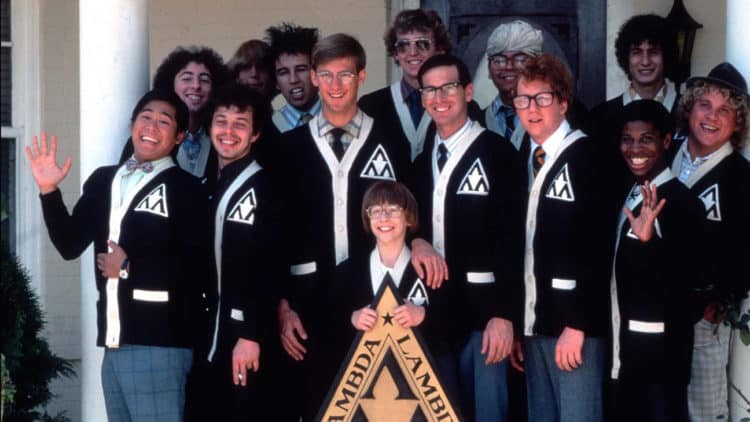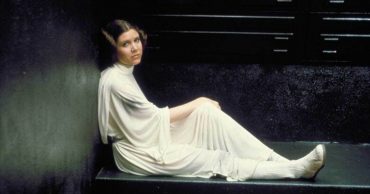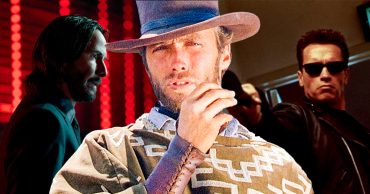
For all the heartfelt nostalgia we have for ‘80s movies, what with their goofy premises, memorable characters, quotable lines, and awesome soundtracks; political correctness and societal shifts in public consciousness can bring to light some of the more distasteful aspects of what we found funny at the time. Not to say that the films themselves were made to be ignorant on purpose, rather, people have grown and become more socially aware of how some of the subject matter was grossly antiquated in how it debased, portrayed, or used certain groups, concepts, or ideals as the butt of a joke. Here are just a few of the films you might not see on cable these days for obvious reasons.
The Toy (1982):
Starring two titans of comedy, namely Jackie Gleason and Richard Pryor, The Toy might not be on the radar of modern-day audiences. Directed by Richard Donner, this movie is troublesome in so many ways. According to the poster art for The Toy:
When Jackie Gleason told his son he could have any present he wanted, he picked the most outrageous gift of all… Richard Pryor.
This was the actual premise. A rich, spoiled white kid asks his blowhard, racist father to buy him an unemployed African American man as a gift. Needless to say, this is one of the many movies that fell out of favor with the populace over the years, and for good reason. On paper, in the early ‘80s, pairing a classic comedic force like Gleason and one of the hottest stand-up comics of the era, Pryor, seemed like comedy gold, but the subject matter for modern eyes is cringeworthy at best. Throughout, Pryor is degraded and abused by the boy and his father which would never fly in today’s culture. Even with the son’s eventual fondness and friendship with Pryor, who becomes the father Gleason never could be, the racist language and overtones do not hold up to our modern sensibilities. What was to be a story about finding commonality and respect for those different from ourselves, comes off as ignorant in execution.
Revenge of the Nerds (1984)
A comedy classic in some folk’s eyes, a story about outcasts getting revenge on their bullies seems like a cut and dry concept. But what makes this movie so outdated and even horrific at times comes from the acts of vengeance the nerds inflict on the jocks, as well as the racial and homophobic portrayals of the titular “heroes” of the film. Starting with the two of the nerds, one being a racist depiction of a Japanese foreign exchange student Takashi played by Brian Tochi, with his offensively caricatured accent, and Lemar (Larry B. Scott), who works as a double threat of inappropriateness by being a stereotyped homosexual as well as the only African American member of the nerds. The two characters, who are meant to show the unbiased nature of the good guys, are more often than not, used as fodder for the bullies. The intent seemed good-natured at the time, sure, but they come off more as distasteful versions of minority groups as the years go by.
Then there is the very big issue of female abuse committed by the nerds. Starting with a panty raid, illegally installing cameras in the female sorority house, selling nude pictures of one of the sorority sisters, and culminating in a sexual assault where the leader of the nerds, Lewis (Robert Carradine) sleeps with the head jock’s girlfriend by wearing a costume to cover his face and pretending to be her boyfriend. What is so insane is that she ends up falling in love with Lewis even after all his arrestable offenses against her and the other women come to light. Yes, this was a typical trope in ’80 sex comedies, but looking back, these “gags” are just plain terrifying. Heck, I’m not even sure if calling them nerds is offensive in some way, but that is the least of this movie’s problems.
Soul Man (1986)
Strap in for this one, kids. It’s a rough one even for ‘80s standards. Now many of you might not have even heard of Soul Man and for good reason. This film is ignorant as hell. Let’s start with just the premise alone. According to IMDb:
To achieve his dream of attending Harvard, a pampered teen poses as a young black man to receive a full scholarship.
I could literally stop right there, but I won’t. Starring C. Thomas Howell, Rae Dawn Chong, Leslie Nielson, Julia Louis-Dreyfus, and James Earl Jones, Soul Man had a strong cast of notable actors who, if they could do it all over again, probably wouldn’t go near this with a ten-foot pole. The main character, Mark (C. Thomas Howell), literally perms his hair and takes a large dose of tanning pills to look like a black student to get an unearned scholarship to Harvard. Sure, he learns a lesson at the end, like so many of these plotlines tend to do, but just imagine a studio greenlighting this nowadays. Enough said.
Heathers (1988)
As one of the darkest comedies to come from the ‘80s, I’ll admit, I really enjoyed Heathers when I saw it years ago. I mean, they even attempted to reboot it in 2018 by changing certain troublesome aspects, but with our present climate of mass school shootings, gun control issues, and focus on the mental health of our youth, this film hits a tender spot with those affected by the reality of our present-day problems.
The premise revolves around a genius girl named Veronica (Winona Ryder) who falls in with the popular girls, all named Heather. She struggles to be her true self, though often finds that she sides with the vapid need to be popular just to get by in high school. Enter Christian Slater as the new bad boy, J.D., who shakes up Veronica’s life when he convinces her to help him kill all the popular students and stage them to look like suicides. Glamoured by his charm, Veronica begins to go along with the plan, until J.D. decides to blow up the high school during a pep rally.
The film was meant to be a satire of the lengths one would go to be cool, but remember, at the time issues like the Columbine shootings were not even close to being a blip on society’s radar. We could watch a film like Heathers and treat it like a work of fiction, but unfortunately, life often imitates art and our perspectives on such matters change drastically. While the message of teenage angst and the need to fit in comes from a place of parody, reality can shed new light on such controversial subjects.
See No Evil, Hear No Evil. (1989)
Our good friend Richard Pryor is back, and this time partnered up with one of his most commonly paired co-stars, Gene Wilder. See No Evil, Hear No Evil was a comedic hit about a blind man (Pryor) and a deaf man (Wilder) who become embroiled in a murder. One saw the event while the other heard it. Mistaken for the killers, the two are forced to work together to clear their names and unearth a bigger crime.
A funny concept, but what makes this film troublesome these days is an issue the disabled community has coined “cripping up.” For those unaware of the term, this is when a non-disabled actor portrays a disabled character, thus taking a job away from an actor who has said disability. Recently, this issue has become a bone of contention with several groups who will call out films such as Come As You Are from 2019 where the cast was playing disabled characters trying to go to a brothel that caters to persons with such issues. Mind you, all of the actors in both that and See No Evil, Hear No Evil learned how to portray their differing ailments from those who were afflicted by them, but many in the disabled community have equated such roles as when white actors used to put on black-face to play other ethnicities. A completely understandable complaint that was never addressed or even thought about back in the day (I’m talking to you, Soul Man). Regardless of how funny or heartfelt these characters are written and played, the idea of losing an acting job to someone who isn’t part of your group has to be frustratingly crushing.
Besides the previous issue discussed, the other reason this movie might not hold up is the fact that the villain of the film is played by ex-Hollywood elite Kevin Spacey, whose disgusting past as a sex offender has made it hard to watch so many great films he starred in. So much so, that the creators of All The Money In The World (2017) had to edit out and replace him with Christopher Plummer before its theatrical release.
 Follow Us
Follow Us





